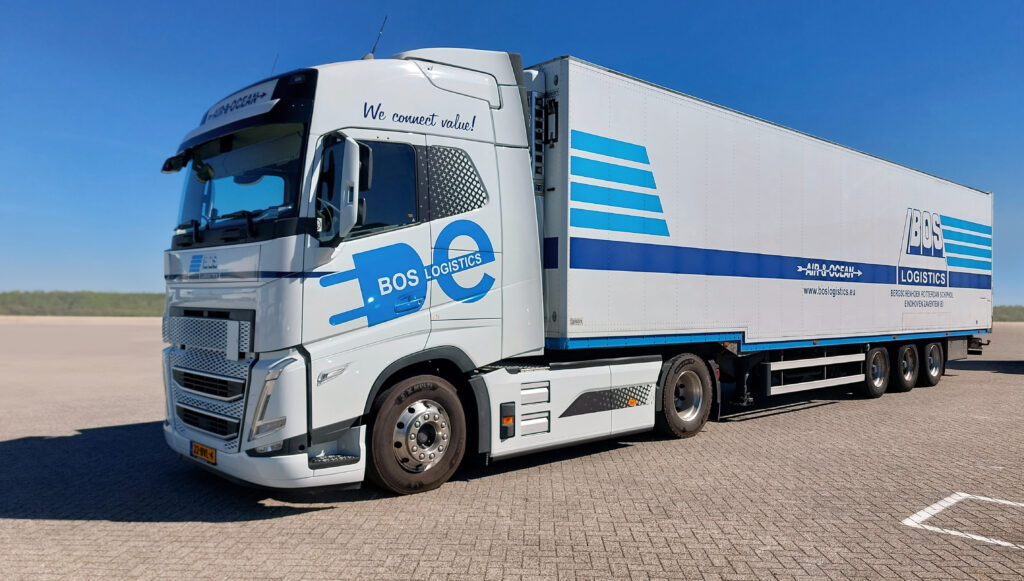January 2023
At the end of last year, Bos Logistics took their first electric truck in operation, a Volvo FH Electric. It is used for first- and last-mile delivery at Schiphol. In combination with a growing network of (truck) charging stations, Bos Logistics is cautiously taking the first steps in electric transport. Especially for TULIPS, Bos will make an inventory of how an electric truck performs compared to trucks with other fuels when it comes to environmental, social and energy impact.

Cargo chain
Cargo is an important component at many airports, including Schiphol. Mainly goods such as pharmaceuticals, food and flowers are transported by air, but also high-tech electronics such as iPhones. Our aim is to reduce CO2 emissions in the cargo chain as well. That is why Bos is conducting research within the TULIPS consortium into the use of electric trucks in daily operations.
Electric Volvo truck
Bos has purchased a Volvo FH Electric. It has a capacity of 490KW (or 667 real HPs) and an adult battery pack of 540KWH, so a range of 300km per battery charge should be achievable. The company uses the electric truck for first- and last-mile delivery. This means that Bos takes the goods from the airport to the end customer, for example at Schiphol-Oost or Schiphol-Rijk.
First experiences
The first experiences of the drivers are positive; In terms of driving experience, the truck drives even better than a diesel. But there are also challenges. For example, the range is still a barrier for both the drivers and the planning. Charging the battery is also difficult when it is colder. In that case it’s a bigger effort to achieve the desired load capacity. The charging power supply is also a challenge. Bos has no power capacity at its own location and is therefore dependent on external charging points. Finally, the charging power supply is a challenge. Bos has no power capacity at its own location and is therefore dependent on external charging points. That is a barrier to making the fleet more sustainable.
Benchmark
In the coming months, Bos will benchmark how an electric truck compares to trucks on other fuels. In doing so, they look at the impact on the environment, society and energy (including the burden on these elements).
Reducing the CO2 footprint in the first and last kilometres
It is Bos Logistic’s ambition to play a leading role in reducing the CO2 footprint in the first and last kilometre of the distribution chain. In addition to the electric truck, they use alternative fuels on special trucks, such as LNG and HVO 100. In addition, they offer an HVO100 option in their distribution network. In this way, they accelerate the implementation and innovation of sustainable technologies and reduce emissions at airports.
For more information check out the Bos Logistics website
